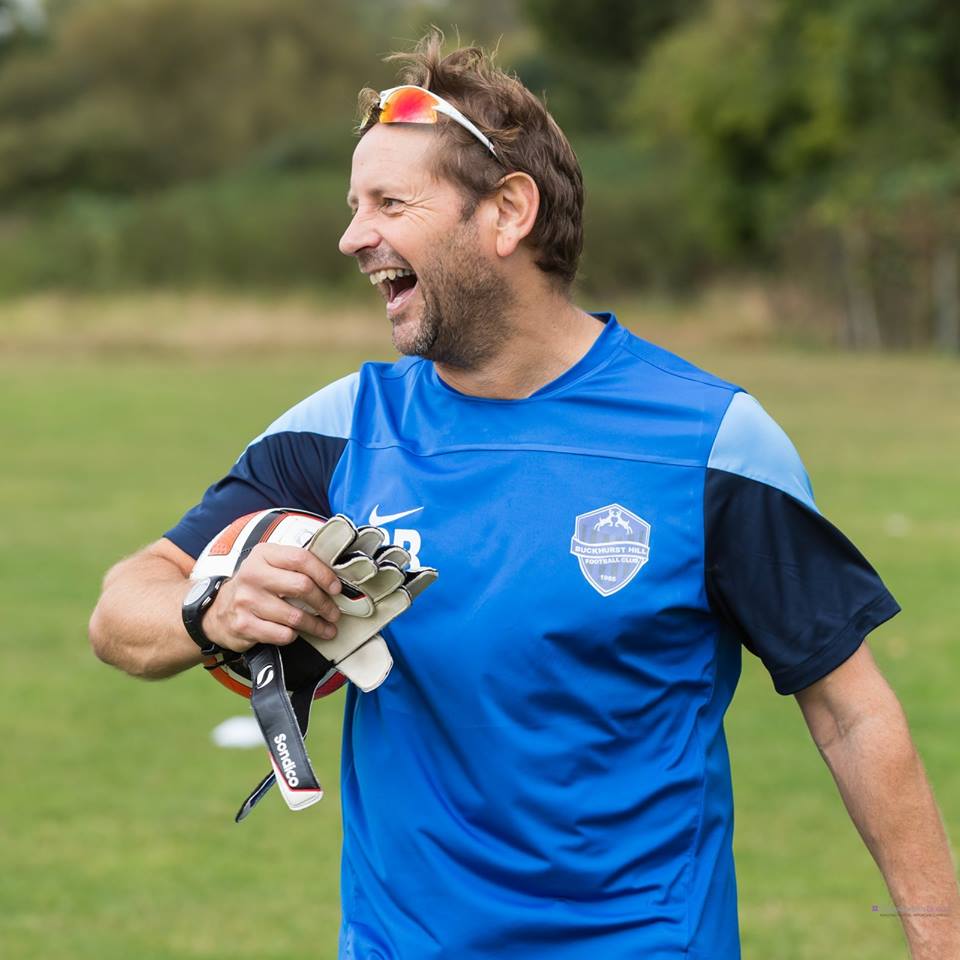
A man who spent 10 years trying to discover what was causing his extreme back pain is lending his support to new programme at Barnet Hospital aimed at shortening diagnosis times for those with the same condition as him.
Stuart Blake, from Buckhurst Hill in Essex, has axial SpA, a painful inflammatory disease of the spine and joints which affects 1 in 200 people and currently takes an average of 8.5 years to diagnose.
If left untreated it can lead to permanently fused bones – however, it is challenging to diagnose and can lay undetected for years.
Now a team at Barnet Hospital – led by consultant rheumatologist Professor Hasan Tahir and Sian Bamford, advanced practice physiotherapist in rheumatology - has been chosen as one of just five from across the UK to be part of the 2021 Aspiring to Excellence programme. The five teams selected as part of the programme will work together with the aim of speeding up diagnosis and improving patient care.
The team includes staff from a range of specialties, including rheumatology, physiotherapy, radiology and pharmacy, as well as research nurses and pathway and service managers. In addition Stuart will also be involved in the work to ensure the patient perspective is always considered.
Over the next two years, the team will be expanded to include representatives from gastroenterology, dermatology, ophthalmology and orthopaedics and they will be supported by the National Axial Spondyloarthiritis Society (NASS) and NHS Transformation Unit (NHS TU), as well as other teams on the programme.
Stuart was diagnosed with axial SpA in 2011, 10 years after he began suffering from pain. Following his diagnosis he has successfully completed numerous triathlon events, including an Ironman challenge – a 2.5mile swim, 112 mile bike ride and then a marathon.
He said: “After suffering 10 years of pain and being misdiagnosed and undiagnosed before finally meeting Professor Tahir, I’m keen for no-one else to suffer for that long. I switched careers from taxi driver to football coach and that change in career has possibly led to fewer flare ups, along with the medication. For some people that delay in diagnosis can mean it’s too late for them to lead any kind of normal life. Before I got diagnosed I had nerve tests, visited physios, chiropractors, osteopaths, had pain injections, epidurals and blood tests until eventually the GP suggested I see a rheumatologist. Professor Tahir actually listened to what I had to say and advised then and there that I had axial SpA which was confirmed after blood and gene tests. I look forward to supporting this programme and offering my insights to cut diagnosis times.”

(Patient representative, Stuart Blake)
Sian said: “It’s fantastic news that we’ve been chosen to be part of the Aspiring to Excellence programme. We are all excited to make a start and help improve the lives of patients with axial SpA. Reducing the delay to diagnosis will enable patients to access the right treatment and care in a more timely fashion. This will have a positive impact on their quality of life and ability to live well with axial SpA.”
Professor Hasan Tahir, added: “We plan to deliver an education programme for health care professionals and the general public so there is a greater awareness of the condition and also to develop a streamlined referral pathway for patients suspected of having the condition. We also want to make improvements to the information, education and care offered to these patients and their support networks. We also plan to develop a new service to support patients experiencing a flare up of symptoms.”
Dr Dale Webb, CEO at NASS said: “By securing their position on the Aspiring to Excellence programme the team at the Royal Free London has proven they have the skills, experience and desire to share insights and learn from others to transform care for patients with axial SpA. These teams will work together to galvanize new processes and bring together departments to innovate care. This is an important step towards reducing diagnosis times for patients and we are proud of the team at the Royal Free London for embarking on this journey with their peers. Together, we will ensure patients with axial SpA receive a swift diagnosis so that they can live well with the condition.”
 Translate
Translate
